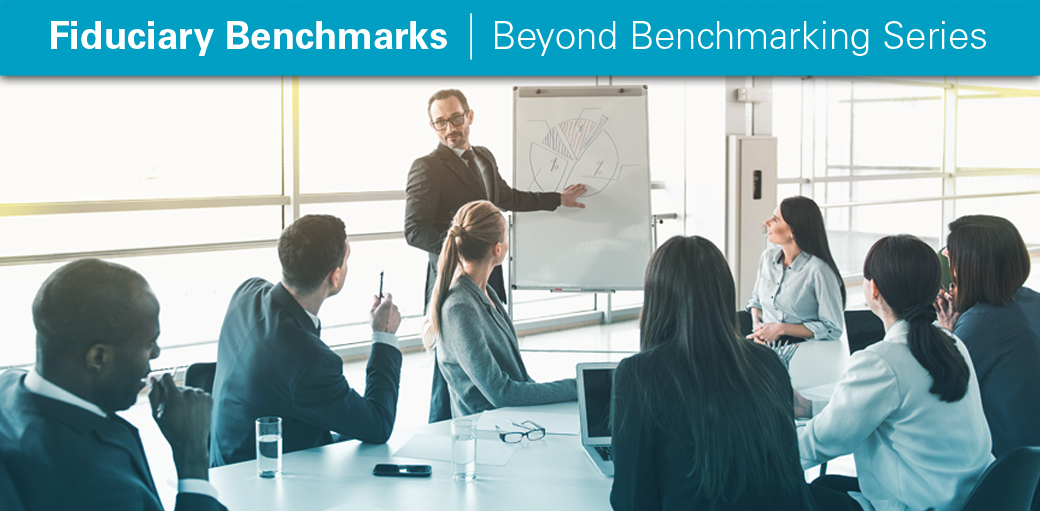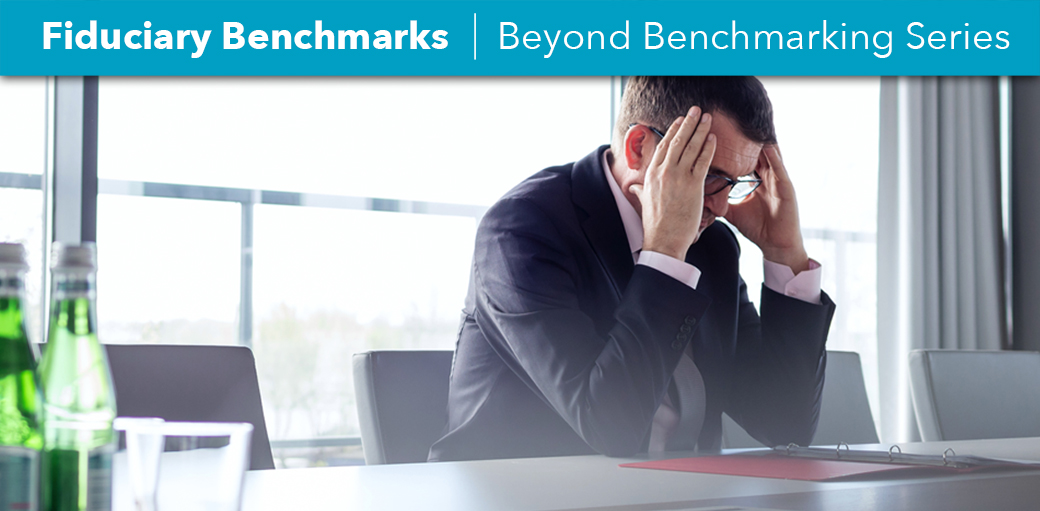Are Your Client’s Retirement Plans Working? No. And Here’s Why.
by Matt Golda
Jun 05, 2019

An Advisors Guide to Fixing the Retirement Plan Crisis
A Bleak Outlook: Savings Crisis Facts
It’s no secret that Americans are severely underprepared for retirement. With social security looking less and less likely to provide for younger generations as the years roll on, retirement plan advisors have a duty and a responsibility to encourage people to save.
Encouragement is only part of the picture, however. There are a number of reasons why Americans aren’t saving for retirement:[1]
- 40.1% say they don’t make enough money
- 24.9% say they are struggling to pay bills
- 10.3% say they don’t think they need retirement savings
- 9.9% say they have used their retirement savings for an emergency
- 9.2% say their company doesn’t offer a 401(k) plan
- 5.7% say they are prioritizing paying down debt
In addition to the savings crisis, there is still large discrepancies in the way retirement plan advisors service their clients from the IPS, plan design, employee education, and more. Some advisors are at the top of the bell curve with their expertise and fluency when administering clients, but what about those advisors who are at the bottom?
Retirement Plan Services – A Checklist of Best Practices
Employee Education
Employee education is a critical piece of the puzzle. 63% of Americans don’t understand how their 401(k) plan works[2], and you’re in the perfect position to fix that. Education programs can help bridge these knowledge gaps by showing people how they can make the most of their employers’ 401(k) plans. This is an investment with tangible long-term benefits, increasing both engagement and savings.
Quarterly Reviews
Whether or not there are any pressing changes to the plan design, it is still important to meet with the retirement plan committee every quarter. The number one plan sponsor concern, according to a Fidelity survey, is effectiveness. Plan sponsors want to know whether their retirement plans are effective in preparing their employees for retirement.[3] Regular demonstrations of your involvement and expertise will boost plan sponsor confidence and ultimately increase participant outcomes.
Vendor Reviews
With lawsuits over excessive fees on the rise and plan sponsors increasingly concerned about mitigating plan-related costs, it’s hard to overstate the importance of conducting vendor reviews.
A few key questions to ask:
- Will the vendor improve service for both plan sponsors and participants?
- Do they provide more high-quality investment options?
- Will they improve employee education and increase participation?
- Will they decrease plan-related costs?
- Do they offer robust technology and tools?
Exposure to Liability
Leaving open exposure to fiduciary liability can be catastrophic to the retirement plan. Whether it’s participant disarray during stock market fluctuation or a lack of understanding about the risks of 401(k) loans, a retirement plan advisor needs to safeguard against soft spots in the plan.
Market Volatility
Anyone who’s spent time and money investing in the stock market knows that making money isn’t a matter of watching a stock ticker tick consistently upward and then cashing out when you feel you’ve made enough: it’s often a wild rollercoaster ride, with ups, downs, twists, turns, and even a loop-the-loop on occasion. Unfortunately, plan sponsors and participants tend to panic at the first sign of a dip, and you know what happens when you try to get off of a rollercoaster in motion (hint: it doesn’t end well!)
Part of their education needs to consist of explaining factors such as time horizon and risk tolerance: the thing about rollercoasters is there’s usually a safe arrival at the end, and your clients will have less concern over their investment if you can get them to understand that.
Cybersecurity
Let’s get one thing out of the way first: it is not a question of if you get hacked, but when you get hacked. Your retirement plan is a bank vault full of not only money, but personal information worth quite a bit on the black market, and anyone with an Internet connection, the right tools, and a total lack of scruples can attempt to crack that safe and make off with everything you and your clients have. If you’re not making an active and serious effort to protect your plan assets and data, you might as well be handing it all over outright.
The best part is, plan sponsors have become an attractive target because recordkeepers do such a good job keeping plan info safe. Compared to them, most sponsors are basically undefended from cyberattack. Invest in cybersecurity and keep those hackers’ hands off your clients’ money and info!
401(k) Loans
“It’s my money, and I need it now!” Taking a short-term loan from a 401(k) can seem like a harmless way to get some extra cash, but it can cause long-term harm to your retirement prospects:
- Less money in the 401(k) account means less tax-deferred growth.
- While the interest rate is fairly low compared to other commercially available loan options, the ROI is usually less than reasonable.
- Most plans restrict participants from actively contributing to the plan while repaying the loan.
- The loan principal and interest are repaid with after-tax money, but the participant will still pay taxes on that money upon distribution in retirement.
In short, taking money out of a 401(k) plan can potentially sabotage all of the advantages that 401(k) plans are supposed to offer. Furthermore, loan repayment can take up to 15 years. In the end, a 401(k) loan might be a viable option in a time of extreme financial duress, but as a plan advisor, it’s your responsibility to make sure your clients fully understand the potential consequences.
The retirement plan crisis is a war that needs to be fought on two fronts: educating employees and plan sponsors, and ensuring that the plans available to them are bulletproof. Armed with knowledge and expertise, retirement plan advisors are the frontline, and it’s up to you to help more Americans get ready for retirement.
[1] CNBC. 42% of Americans are at risk of retiring broke. March 2018.
[2] Elkins, Kathleen. “Nearly two-thirds of Americans are confused about this simple way to save for retirement.” March 2019.
About Author:

Matt Golda, Matt Golda CFA, Senior Vice President, Technology and Operations
Matt is responsible for the overall product development efforts of the firm. In addition, Matt oversees all technology and operations issues including the development and execution of the FDI portal and the FDI reports.

